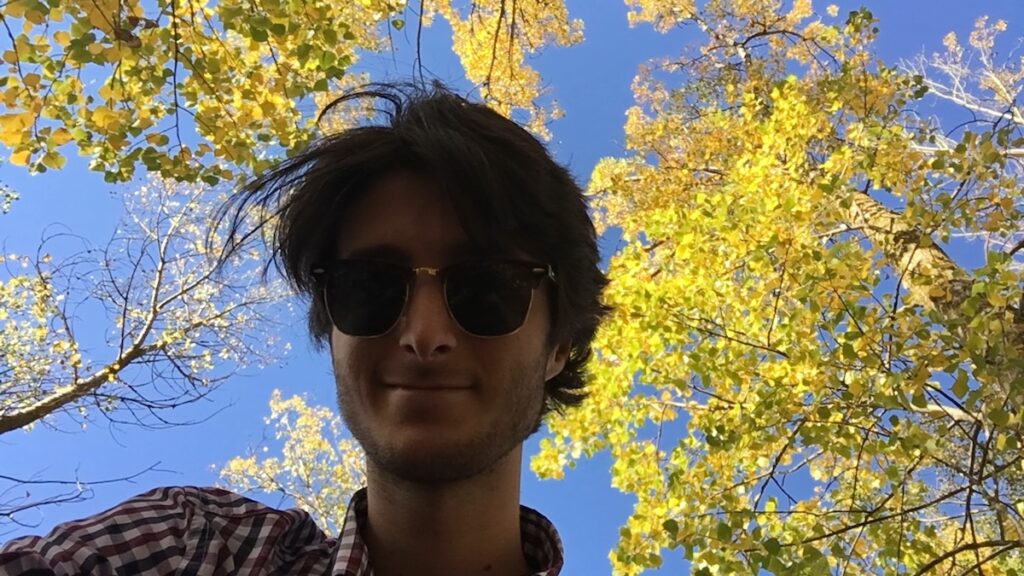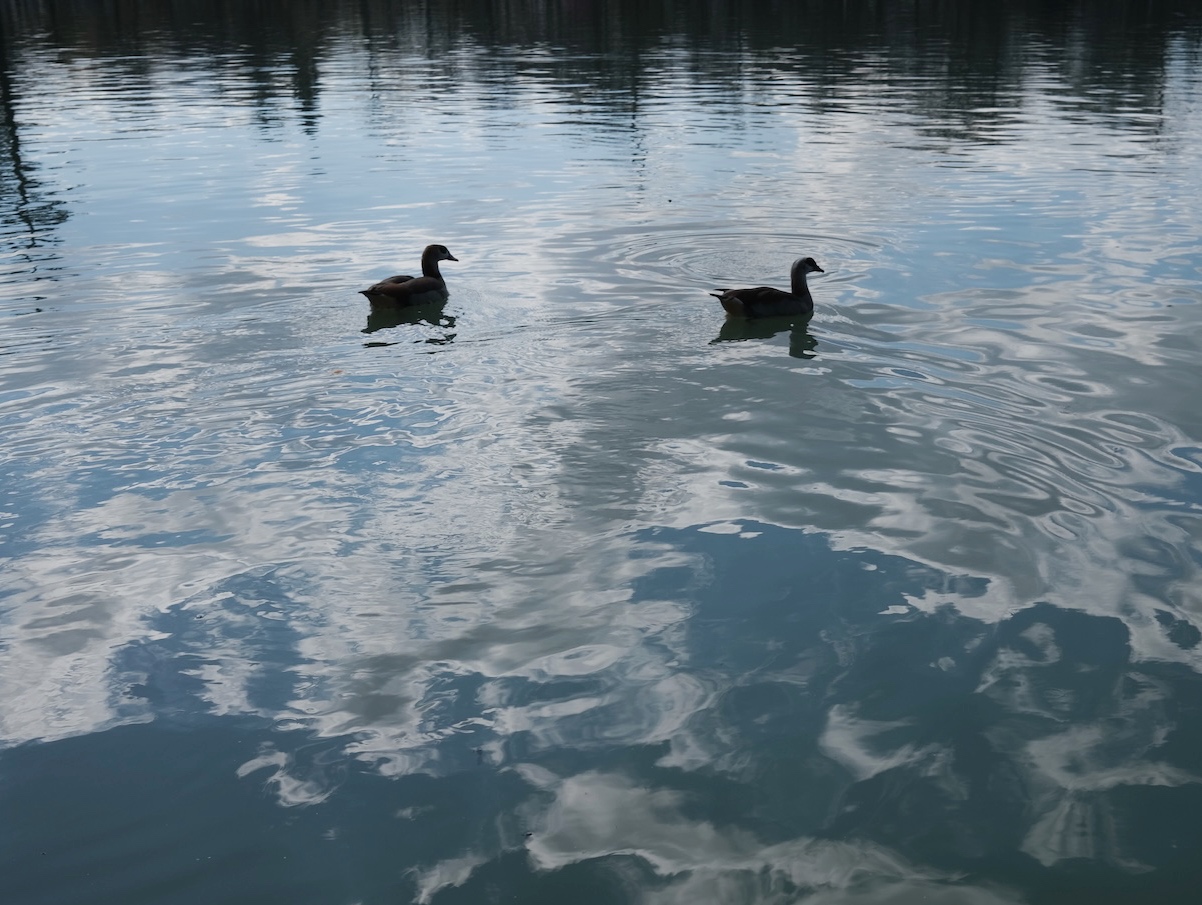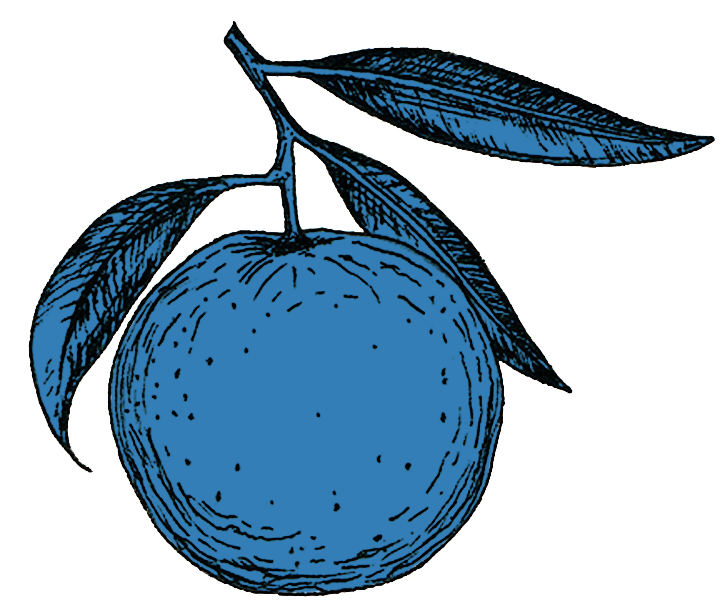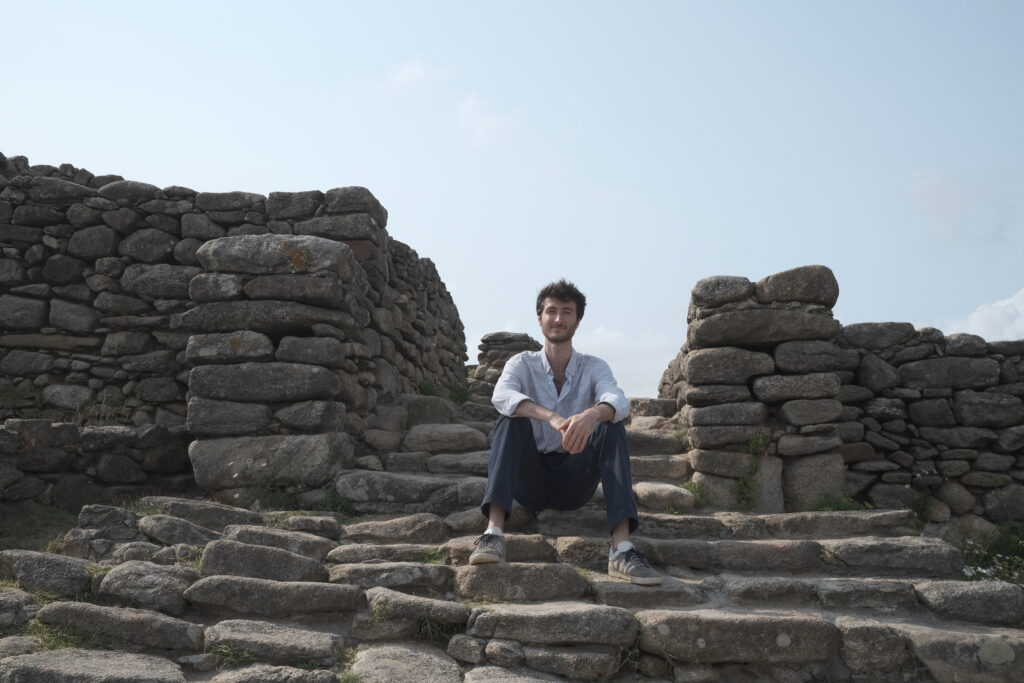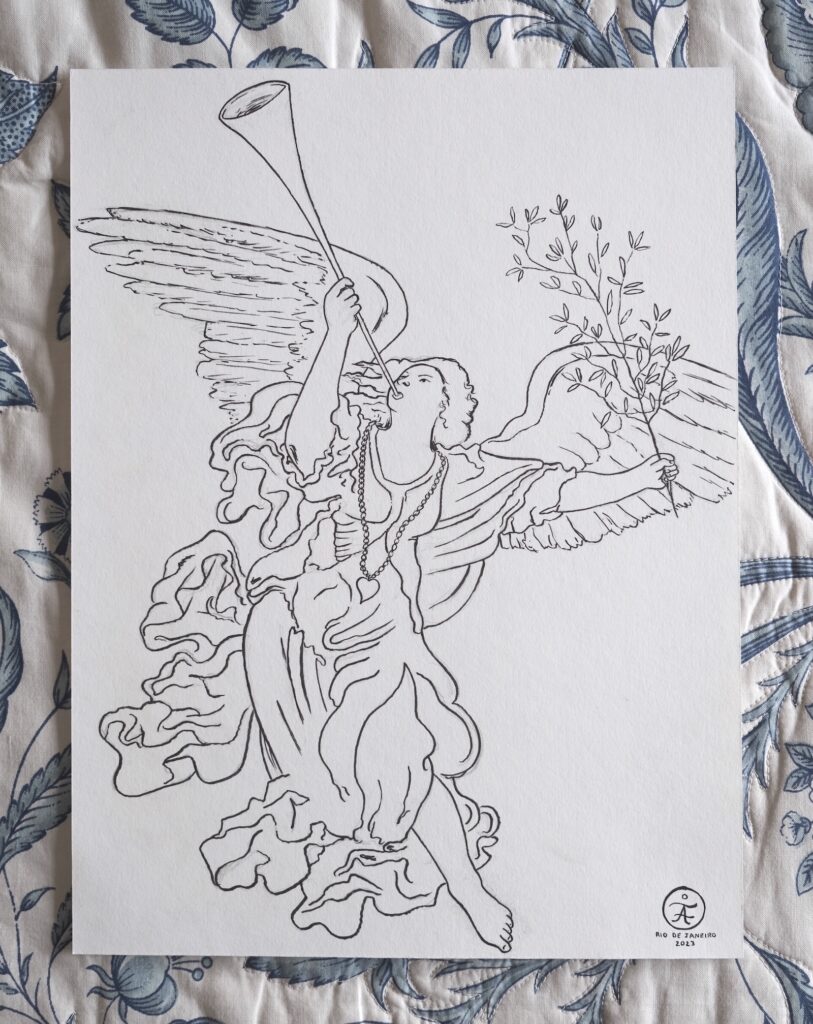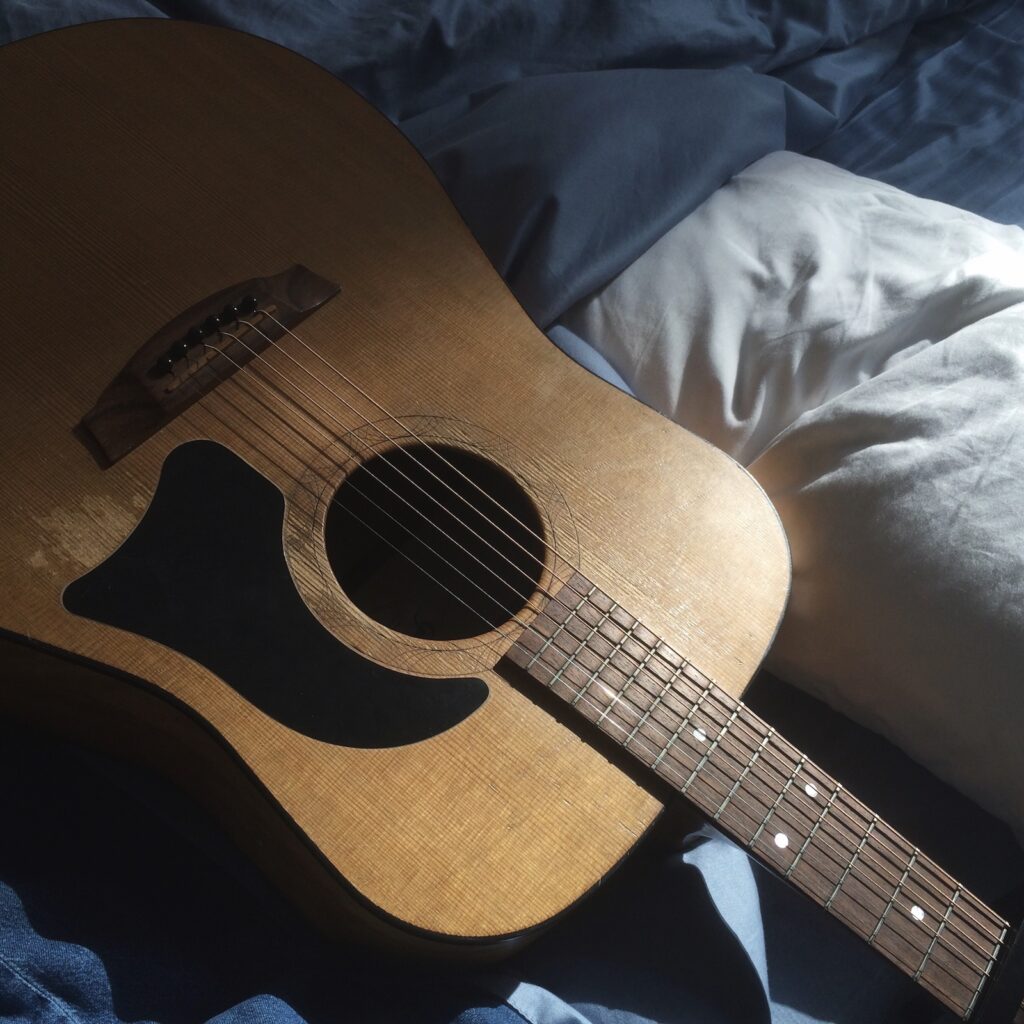“If today were the last day of my life, would I want to do what I am about to do today? And whenever the answer has been “No” for too many days in a row, I know I need to change something.” – Steve Jobs
Imagine an electromagnetic field like the one generated by a magnet. Now, throw a handful of iron filings. What you’ll see is how the filings, interacting with the field, quickly arrange themselves in specific places. What determines where each filing ends up is its electrical charge.
If you want to move a filing, you can do two things:
You can push it and, through force, move it to a new place. The problem with this is that as soon as you stop applying force, the filing will return to its original position because its charge remains the same.
The other option is to alter the electrical charge of the filing. Then, without applying any force, the power of the field will move the filing to its new rightful place effortlessly.
In this case, if you want to prevent the filing from moving, you’ll have to apply force against it. But force is always limited (armies have a limited number of soldiers, a human has a limited amount of energy). Sooner or later, one will tire of keeping the filing where it doesn’t belong. On the other hand, the filing will never stop pushing towards its new destiny because what moves it is not its own force but the power of the field. Power is limitless and has no opposition. Therefore, sooner or later, the filing will reach where it is meant to go.
This analogy describes well how karma works. You are the filing, the electrical charge is your karma, and God is the infinite field of infinite power in which you appear.
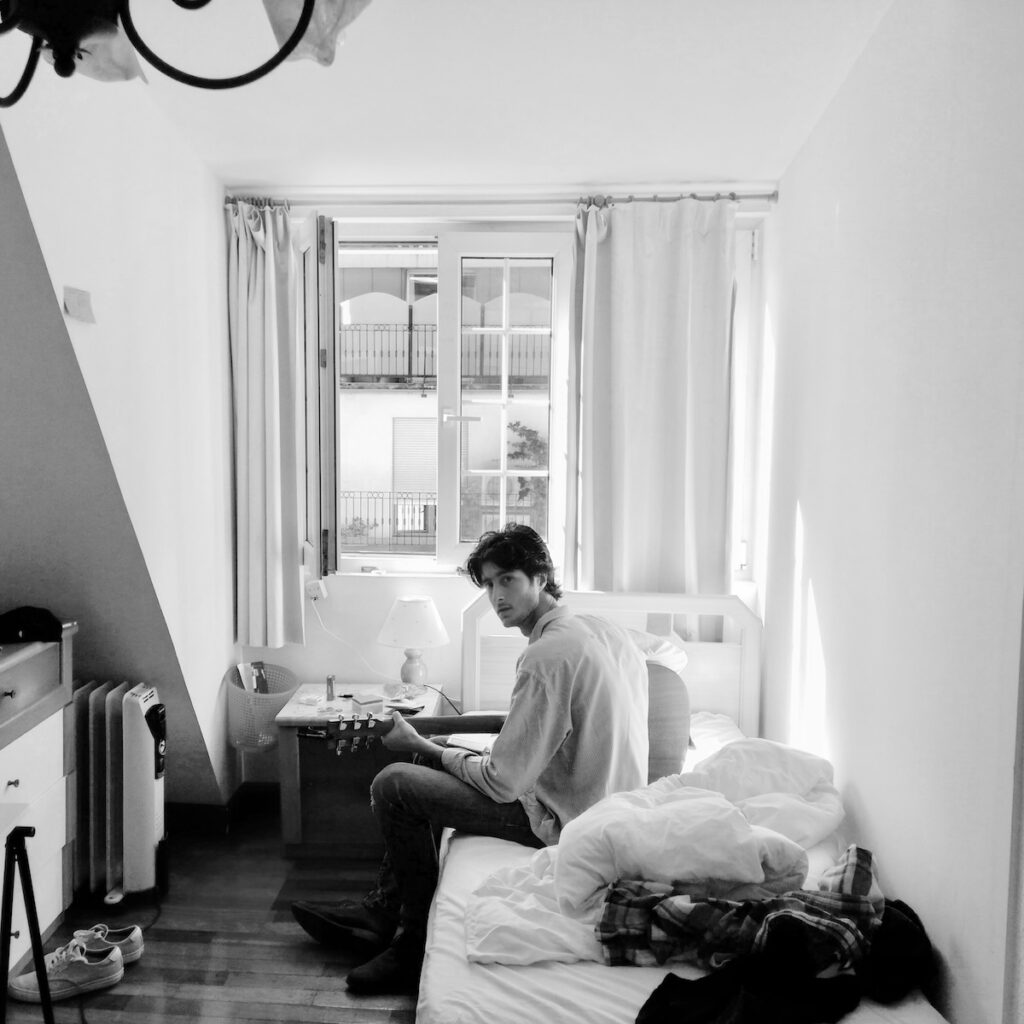
I wish I had understood this at 21 when I returned transformed to Spain after a year in Chicago. I left as an engineer and an atheist. I returned as an artist and… not an atheist. Basically, I switched from the left hemisphere to the right hemisphere. That is equivalent to changing the electrical charge of a filing from negative to positive. The leap to a new place was imminent and inevitable.
Understanding the karma analogy would have helped me trust the field, which simply wanted to take me to a more suitable place for that new self. However, all I remember is feeling really uncomfortable where I was, as if I were trying to fit into a space that no longer had my shape. I couldn’t stay there, but leaving seemed like a leap into the void.
This affected all areas of my life, but it was most noticeable in my professional path. Shortly after returning to Madrid, I started the engineering master’s program. But I soon realized I had no business there. I remember spending all my classes writing song lyrics or drawing portraits of my classmates and professors. I was also the only guy with long hair in the entire university.
I was “lucky” that my parents, each on their own, went on a trip at the same time, leaving me two weeks without a sensible and rational figure to influence me in my crisis. I spent the two weeks lying on the floor, staring at the ceiling, and plucking daisies, “Do it, don’t do it, do it, don’t do it…”
When my parents returned, the decision was made. I informed them, and a few days later, I left the master’s program and made the jump into the void.
I say void because it was not at all clear that I wanted to dedicate myself to music. Wanting to write good songs is one thing, and choosing it as a professional path is quite another. So, for several months, I just floated in an existential limbo.
That period was characterised by the fear of freedom. I didn’t know what to do, and all doors seemed open. I remember a poem by Sylvia Plath in which she describes herself sitting at the feet of a fig tree. At the tip of each branch, like a large, purple fig, a wonderful future awaits her. One fig is a good husband and a beautiful family. Another fig is a famous poet, and another is a brilliant teacher. Editor, athlete… potential futures multiply with each branch, but she must choose only one, thus losing all the others. Indecision then leads her to stay seated and starving, watching as the figs slowly turn black and fall to the ground around her.
In my case, I woke up early in the morning, and the world around me kept turning. But I remained still, sitting at the feet of another fig tree.
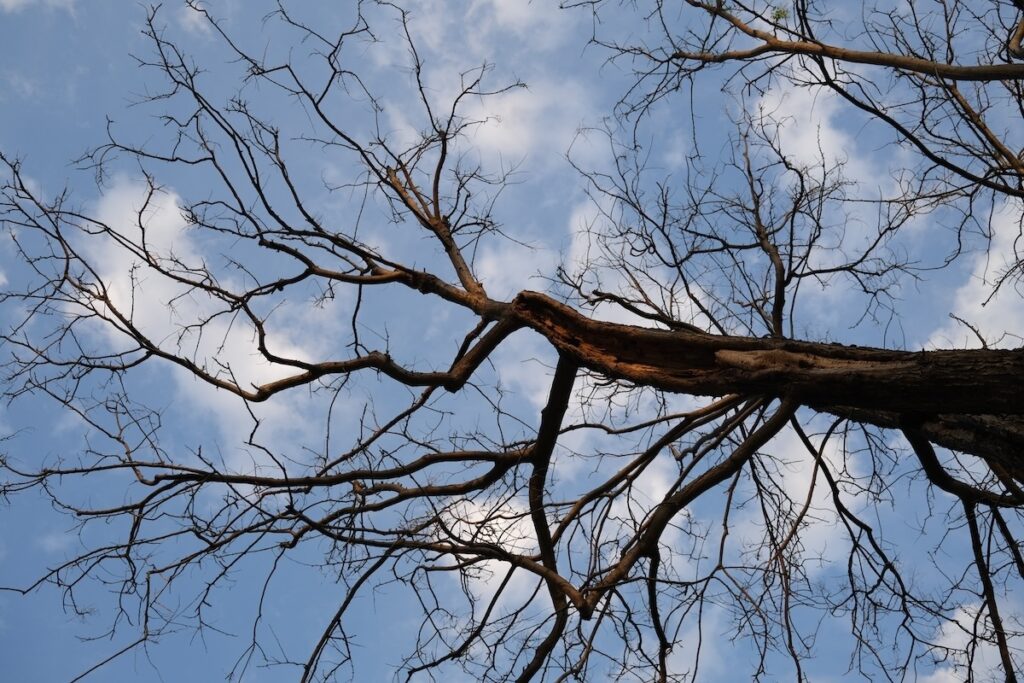
Gradually, a plan B emerged: to pursue industrial design. I got accepted into a master’s program that started in 10 months, and into an internship that started in 3. It seemed like a good plan, but I wasn’t entirely sure if it was for me.
Those remaining three months of limbo were dedicated to songwriting, studying existentialism, traveling to the Basque Country, in the North of Spain, and strolling through Madrid at hours when everyone else was in class or at work.
During one of those walks, I arrived at a bookstore where there was a black cat. I got closer to pet it, and next to it, a large book with paint strokes on the cover caught my attention. The bookseller approached and explained that it was “The Artist’s Way” by Julia Cameron, a course aimed at overcoming creative blocks. I hadn’t been able to finish any songs since my return to Spain, so I took it with me and started to read it that night.
I never got past the introduction, which was enough for me. In it, she talked about how we are not the creators. There is only one Creator in the universe, and we are its instruments. We are a channel of creation, and our job is to get out of the way to keep the channel open. The creative process, according to her, was like a dictation. I had experienced that when writing inspired, but I had never interpreted in that way.
That day, I also changed the tuning of my guitar to a completely different tuning. By doing this, all the chords I knew were useless, so it was as if I didn’t know how to play. I liked this; it was a creative challenge.
The next morning, I decided to go on a trip to the North, to see the sea and visit my cousin who lived in San Sebastián. I was on the road, in a sunny mood, listening to Buena Vista Social Club. At a certain moment, the idea of being a channel of creation returned to my mind. I decided to experiment with it: I turned off the music, remained silent both externally and internally, and stayed as if waiting to hear a dictation. I was open to receiving, but I wasn’t actively seeking. I don’t know how much time I spent like that, but I snapped out of that blank state when a flock of birds passed in front of me on the road. I saw them, and out of nowhere, I sang “If I was a bird…”. That lyric came with a simple and beautiful ascending melody. I liked it, and I decided to stop at the next exit because I felt there was more.
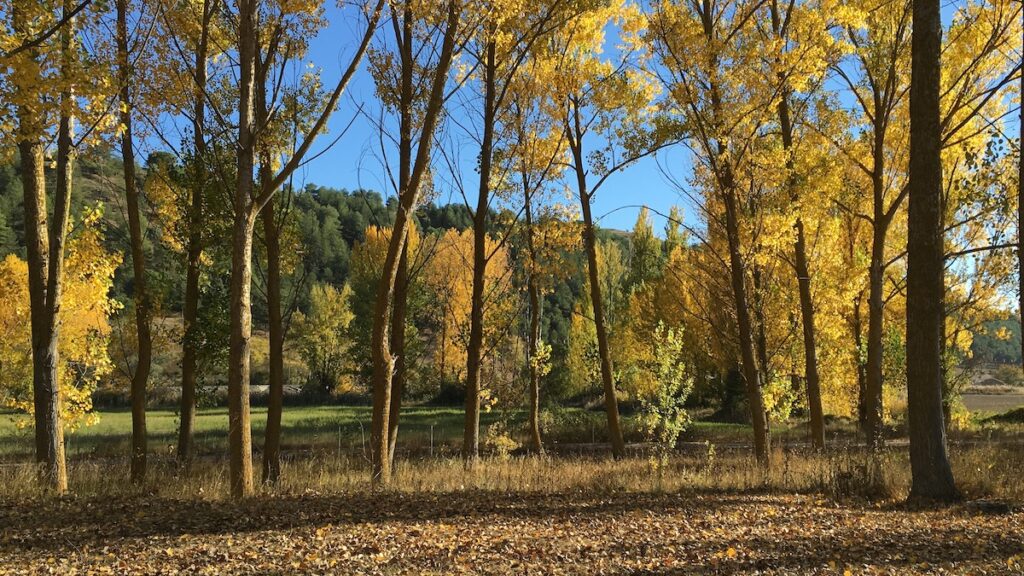
I stopped at this beautiful place. It was autumn, and the yellow trees contrasted with the blue sky. There was a river nearby that I couldn’t see but could hear. I took out my guitar, sat on a stump amid the fallen leaves, and made up some chords in that new tuning to accompany the melodies that were coming to me. I began to write about what I saw around me: the trees, the valley, the hidden river, the blue sky peeking through the yellow leaves. This is what I wrote in a matter of minutes, as if following a dictation:
If I was a bird
I wouldn’t mind the time
For time is a number
And birds can’t count
And I would fly above
This valley of green
And blue tangerines
And blue tangerines
If I was a river
I would find my own way
Around the trees
They would never notice me
And I would make them rise
So tall and proud
And fuse with the sky
And fuse with the sky
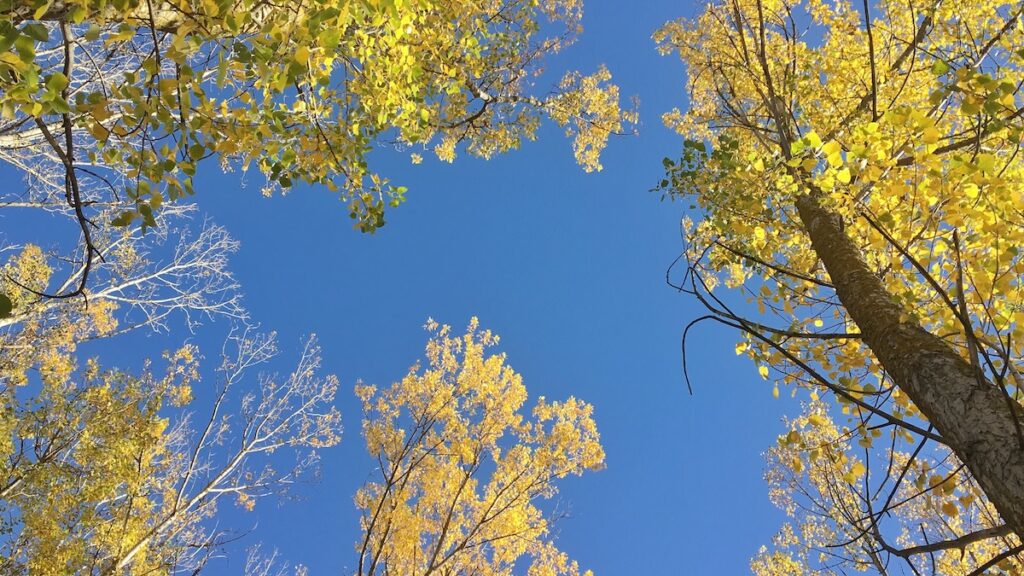
A few days later, back in Madrid, the third verse came to me, which seemed the most mysterious of all:
If I was today
Oh, the things I would see
I’d breath calm and conscious
Of what it means to be me
But instead, I’m yesterday and tomorrow
But I’m just a human
It was so simple and it came so effortlessly that I didn’t give it much value. I only realized it was something special when I played it for my father, sitting at the piano, and when I finished, I looked at him and found him wide-eyed and open-mouthed.
That reaction was new, and for the first time, I thought that maybe I had what it took to pursue music professionally. So, curiously, that song in which I dreamt of finding my own path was the first clear sign that pointed me in its direction.
And so, without suspecting it, the infinite field was guiding me to where I was meant to go.
Two years later, we recorded “If I was a Bird” along with a beautiful music video/short film to accompany it. You can watch the result by clicking on the blue tangerine.
With all my love,
A.
